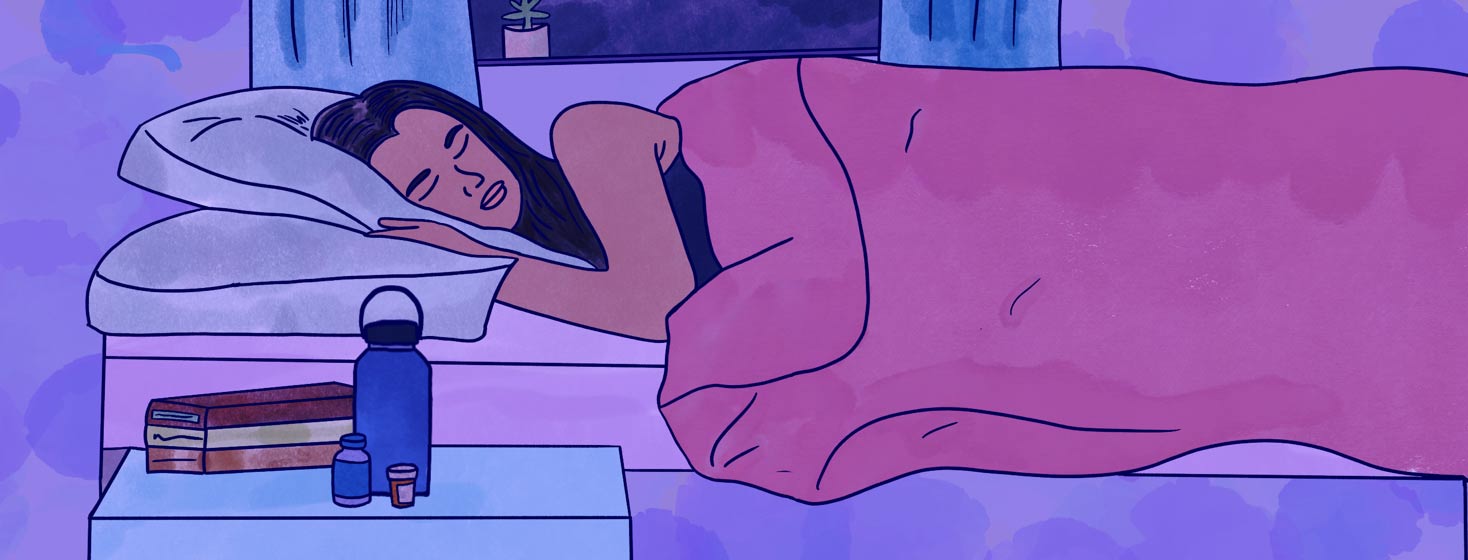Tips for Improving Sleep With Allergies
I have always had trouble sleeping. From long bouts of insomnia to coughing from asthma to a stuffy nose that never clears thanks to year-round allergies. I try to practice healthy sleep habits (also known as sleep hygiene) to help me get a better night's sleep.
Helpful habits to control allergies during sleep
I (try to) shut off all electronics 30 minutes before bed, enjoy a warm cup of tea to relax my brain and body, and put on my most comfortable sleep clothes. Below are a few things I do specifically to control my allergies so I can sleep through the night.
Choose your room temperature wisely
Keep your bedroom temperature comfortable. Personally, I like sleeping in a cool room with the ceiling fan on all year round. I love to cozy up in my favorite warm, soft blankets. I also prefer to sleep in a very dark room, although I always have a nightlight plugged in close by in case I need to get up in the middle of the night. Set the light brightness and room temperature to whatever makes you most comfortable.
Take medications as directed
Before heading to sleep, I take all my medications as prescribed by my doctors. I use a nasal rinse to help clear my nasal passages right before bed. This can help manage allergy symptoms and promote a restful night of sleep.
Stock your nightstand with essentials
Prepare your nightstand with all the essentials. Due to my allergy medications, I often wake up in the middle of the night feeling dehydrated. I keep a reusable water bottle with water on my nightstand, so it's there if I need it. I place it next to a box of tissues, so I can grab either of them easily. Waking up with a sinus headache is not uncommon for me, so I also keep sinus headache meds on my nightstand. These headaches are painful, and I want to be able to take medication quickly.
Identify and reduce allergy triggers
There may be specific allergy triggers where you sleep. Getting allergy tested is the first step in managing your triggers in both the daytime and nighttime. Here are ways to reduce common allergy triggers before bedtime.
Dust mites
Keep the humidity of your room level between 30 and 60 percent. Dust mites and mold both grow in high humidity. If you are allergic to dust mites, use an allergen-proof mattress and pillow cover. Vacuum weekly with a HEPA filter vacuum, and damp dust often. Keep the ceiling fan blades clean if you have a ceiling fan. Wash your bedding once a week in hot water and choose hypoallergenic bedding that is machine washable.
Mold
Reduce and remove mold by fixing leaks that allow water to get in around the windowsills, walls, or ceilings. Clean up any mold you see immediately with soap and hot water. The soil of houseplants can also contain mold, so check them often. Remember, mold is both an allergen and an irritant. Even if you are not allergic to it, it can still impact your lungs and breathing.
Pet dander
If you are allergic to your pets, keep them off your bed and preferably out of the bedroom altogether. Wipe them down or have them bathed as needed.
Pollen
If you are allergic to pollen, remove your clothes and shower/bath before bed. This will keep the pollen from collecting in your bedding. Use an air purifier big enough for the room to remove allergens and irritants and change the filters on your HVAC system as recommended by the manufacturer.
A few other allergy-friendly sleep tips
If fragrances trigger allergy symptoms, try not to store or use perfume, cologne, and other personal care products near where you sleep. The same goes for scented candles or essential oils. Another tip that is often overlooked is to avoid eating in your bedroom. Crumbs or spills can attract pests like mice or cockroaches. Droppings and saliva from pests can trigger allergies or asthma.
Do your allergies get worse at night? How do you keep them from keeping you awake?

Join the conversation